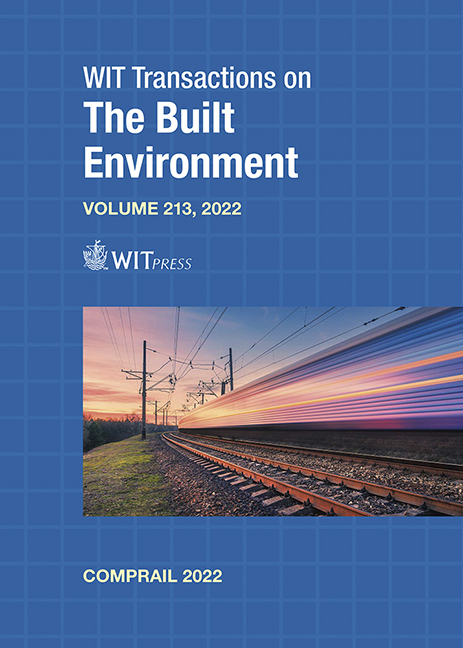DEVELOPMENT OF A NEW LEVEL CROSSING CONTROL SYSTEM UTILIZING COMMERCIAL MOBILE NETWORK AND GNSS
Price
Free (open access)
Transaction
Volume
213
Pages
9
Page Range
171 - 179
Published
2022
Paper DOI
10.2495/CR220151
Copyright
Author(s)
KOSHIRO YANAI, MITSUGU TOMIOKA, HIROSHI ITO, KOJI SUGIURA
Abstract
East Japan Railway Company is working to streamline its facilities as the number of workers decreases due to the declining birth-rate and aging population in Japan. The analysis of life cycle costs related to signalling equipment shows that the majority of the costs are for level crossing safety equipment. A new developing level crossing control system depending upon mobile networks and GNSS, will streamline the equipment and improve level crossing safety and reliability by reducing the train detecting sensors, which are usually equipped with track circuits, level crossing emergency signals, which inform danger at level crossings to the driver, and the dedicated cables. There are many issues to be addressed in order to use mobile networks and GNSS before applying to the train control system, and it is necessary to establish methods to ensure safety and required level of availability. In our previous paper, we conducted an FMEA/FTA analysis to identify hazardous events for this system. This paper proposes an advanced method for level crossing control including train speed control and suggests the ways to ensure the safety and reliability of the system according to the previous hazardous analysis. As the running test result of the prototype devices on the Hachiko Line, the probability of mobile network disconnection between the control server and the on-board device was 9.9 × 10−7/h. Localization error rate using GNSS was calculated as 0.18% to the actual distance. The running test result showed that safety and reliability of the system meet the level required for revenue service. We are targeting to start using this system on the Hachiko Line in 2025 as first revenue service.
Keywords
level crossing, mobile network, GNSS





